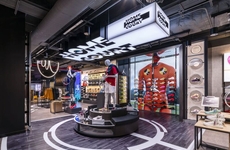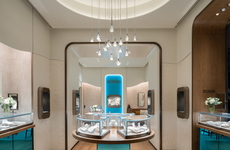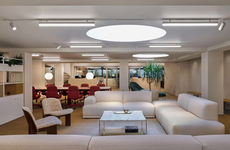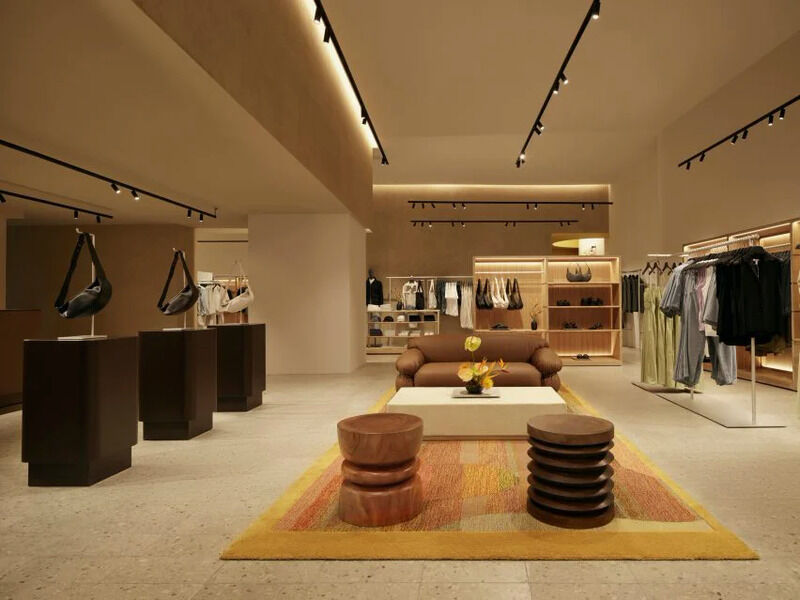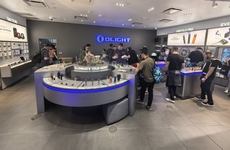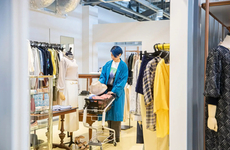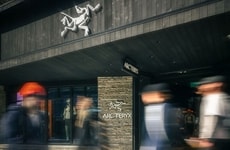
COS Adopts Recycled Materials to Enhance its New Store Locations
COS has recently taken significant strides toward incorporating sustainable design principles into its new concept stores, emphasizing a commitment to eco-friendly building practices and circular design. The brand's latest stores in Stockholm and Mexico City serve as prime examples of this initiative.
In these stores, COS has prioritized using sustainable and durable materials, ensuring that furniture and fixtures can be easily repaired rather than replaced. This approach helps to extend the life cycle of the store's elements while minimizing waste.
"We prioritised materials that can be easily repaired, and are designed for disassembly by avoiding mixing materials that are hard to decouple later down the line," explained Marcus Cole, COS architectural creative lead.
The brand has also substantially changed its store interiors, incorporating 30% recycled aluminium for clothing rails and utilizing 100% recycled mannequins. Additionally, all concrete fittings have been removed, further aligning with the brand’s sustainability goals.
Image Credit: A?ke Lindman, Fernando Marroquin
In these stores, COS has prioritized using sustainable and durable materials, ensuring that furniture and fixtures can be easily repaired rather than replaced. This approach helps to extend the life cycle of the store's elements while minimizing waste.
"We prioritised materials that can be easily repaired, and are designed for disassembly by avoiding mixing materials that are hard to decouple later down the line," explained Marcus Cole, COS architectural creative lead.
The brand has also substantially changed its store interiors, incorporating 30% recycled aluminium for clothing rails and utilizing 100% recycled mannequins. Additionally, all concrete fittings have been removed, further aligning with the brand’s sustainability goals.
Image Credit: A?ke Lindman, Fernando Marroquin
Trend Themes
1. Circular Design Innovations - Implementing circular design in retail spaces enhances sustainability by focusing on materials that can be easily repaired and disassembled.
2. Recycled Material Utilization - Utilizing recycled materials like aluminium and mannequins in retail enhances eco-friendliness and waste reduction.
3. Eco-friendly Retail Fixtures - Transitioning to sustainable and durable fixtures in stores extends their life cycle and minimizes environmental impact.
Industry Implications
1. Retail Sector - The retail sector can significantly benefit from adopting sustainable and recyclable materials in store design.
2. Sustainable Architecture - Sustainable architecture offers opportunities to design buildings and interiors that prioritize eco-friendly and recyclable materials.
3. Eco-friendly Manufacturing - Eco-friendly manufacturing focuses on creating products and components that can be easily repaired and recycled within the production process.
6.5
Score
Popularity
Activity
Freshness


